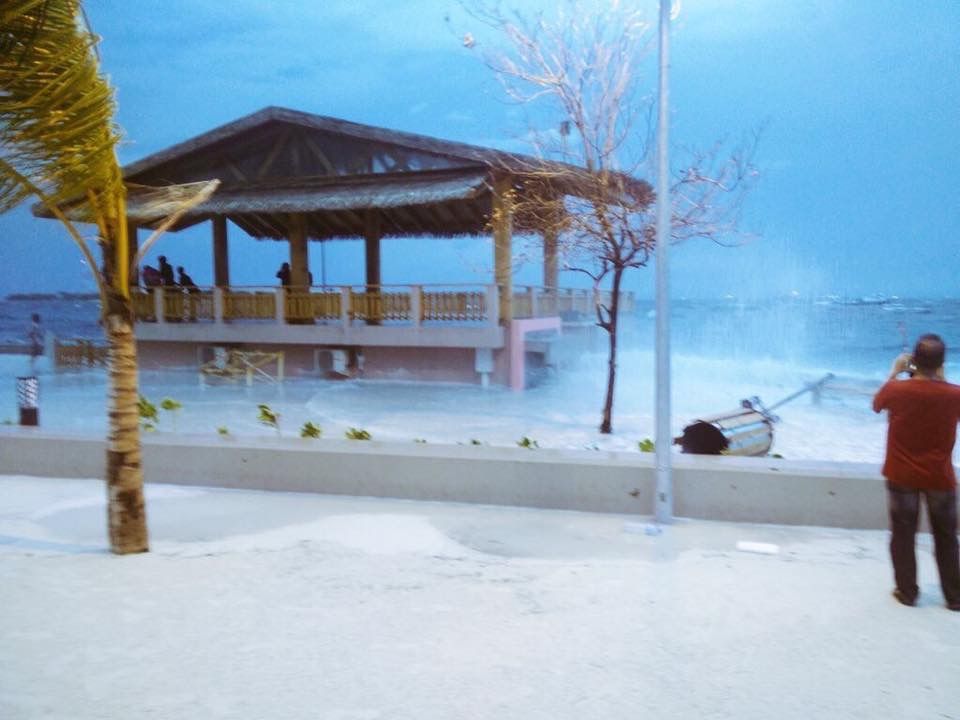Tidal surges wreak havoc at Malé’s new artificial beach
Storm surges caused extensive damage at the newly built artificial beach in Malé, Rasfannu, on Tuesday, uprooting lampposts, toppling chairs and bins, and displacing large swathes of sand inland.

19 May 2016, 9:00 AM
Storm surges caused extensive damage at the newly built artificial beach in Malé on Tuesday, uprooting lampposts, toppling chairs and bins, and displacing large swathes of sand inland.
The damage has revived concerns over the housing ministry’s planning of the project, with some critics saying the western edge of Malé is not suitable for a recreational beach.
Housing Minister Dr Mohamed Muizz, however, dismissed concerns, saying his staff had returned Rasfannu to “normal” within a few hours.
“We were not surprised,” he told online newspaper Avas. “I do not believe the damages caused were severe.” The ministry only had to replenish the sand that was washed out, he said.
Become a member
Get full access to our archive and personalise your experience.
Already a member?
Discussion
No comments yet. Be the first to share your thoughts!
No comments yet. Be the first to join the conversation!
Join the Conversation
Sign in to share your thoughts under an alias and take part in the discussion. Independent journalism thrives on open, respectful debate — your voice matters.




